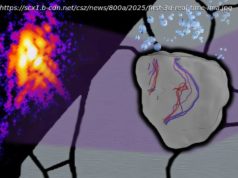AI is all the rage, but some doctors fear that it’s an advertising tagline.
Artificial intelligence will cure health care. And revolutionize medicine as we know it.
That’s according to a slew of headlines this week, including the cover of Newsweek.
The prevailing narrative goes that Silicon Valley’s technology companies, like Alphabet and IBM, will bring super-computing to medicine, thus transforming a $ trillion broken sector. Cha-ching. Computers will detect complex diagnoses in piles of medical images in overrun clinics, and that’s just the beginning.
But as digital health futurist Maneesh Juneja pointed out this week, there’s a difference between hype and hope. So CNBC interviewed a half-dozen doctors to find out what they think.
The first takeaway: doctors seemed to have different ideas about the meaning of the term « AI. »
Some thought it broadly referred to tools to help with their decision-making; others suggested it involved neural networks and machine learning. Tom Oates, a nephrologist in the UK, said it’s « almost become an advertising tag line which few people can define. »
Such marketing also didn’t matter much to Ethan Weiss, a cardiologist at UC San Francisco. « I don’t care what they say it is, » he said. « I care about the input and the output. »
Despite his aversion to jargon, Weiss was among the most optimistic of the group.
In recent weeks, he’s closely followed the developments of UK-based Alphabet company DeepMind, which taught computers to master an ancient game called Go.
For Weiss, what mattered is how the computer « changed the way the game gets made » after thousands of years of humans playing it. He hopes that Google might somehow figure out ways to crack complex problems like obesity by understanding the biological factors that drive people to gain weight or put weight back on. The hope, he said, « is to be unbiased and let the data tell us how to do things. »
The specific applications that he finds most compelling are areas with « clean data-sets, » which include pathology and radiology. He also thinks computers might do a better job at interpreting electrocardigrams, which display electrical activity with the heart. Finding good data is a big challenge for AI, many of the doctors pointed out. Medicine has a lot of shades of gray, making it difficult to agree on ground train and train AI to diagnose most conditions.
What Weiss doesn’t believe will happen is that computers will replace his job or cure America’s health system. That is a much more complex feat that can’t be solved with a tech bandaid. At best, he said, « I hope it will help me do things that I don’t want to do. »
Several doctors agreed that AI will help them with their grunt work, and hopefully free them up to spend more time with patients.
« Health and health care is too human a notion for AI alone to cure it, » says Rasu Shrestha, chief innovation officer at University of Pittsburgh Medical Center and chief of the division of radiology informatics.
Radiology is the specialty that many in the tech industry believe will be disrupted first by AI. A nuanced read in the New Yorker on the topic cites a computer scientist who thinks that medical schools should stop training radiologists altogether.
But Shrestha doesn’t think that AI will do his job. Instead, he hopes that it will free him up to spend more time with patients, rather than being a « mere diagnostician » or a « human robot. »
Oates agreed that it could take over some of the more mundane aspects of his job. He said UPMC has some AI algorithms in place to help them with their decision-making, but it’s still limited today.
Most of the doctors were not aware of uses of AI being used in the clinic to benefit patients outside of a research study. Before it becomes mainstream, health systems will need to find ways to protect the privacy of patients, and protect themselves from liability. What if the AI gets it wrong?
Ultimately, they agreed that what matters is whether this technology is helping patients — not how cool it seems, or whether it makes money for Silicon Valley venture capitalists.
Joel Zivot, an anesthesiologist and fellowship director in critical care medicine at Emory University, noted that doctors and patients are too rarely represented in health technology. Too often, he said that companies « imagine what they think is our deep problem and they try to solve it. »
The reality with health care, he said, is that it’s a complicated, collaborative and fundamentally human. It’s not about super-doctors — or supercomputers for that matter — parachuting in to save the day.
« I think Silicon Valley has taken this simplistic voice in thinking that we need data and fast computers, » he said. « Before companies say they’re going to make the future better, first come and talk to me and try to understand what I do in some deeper way. »






